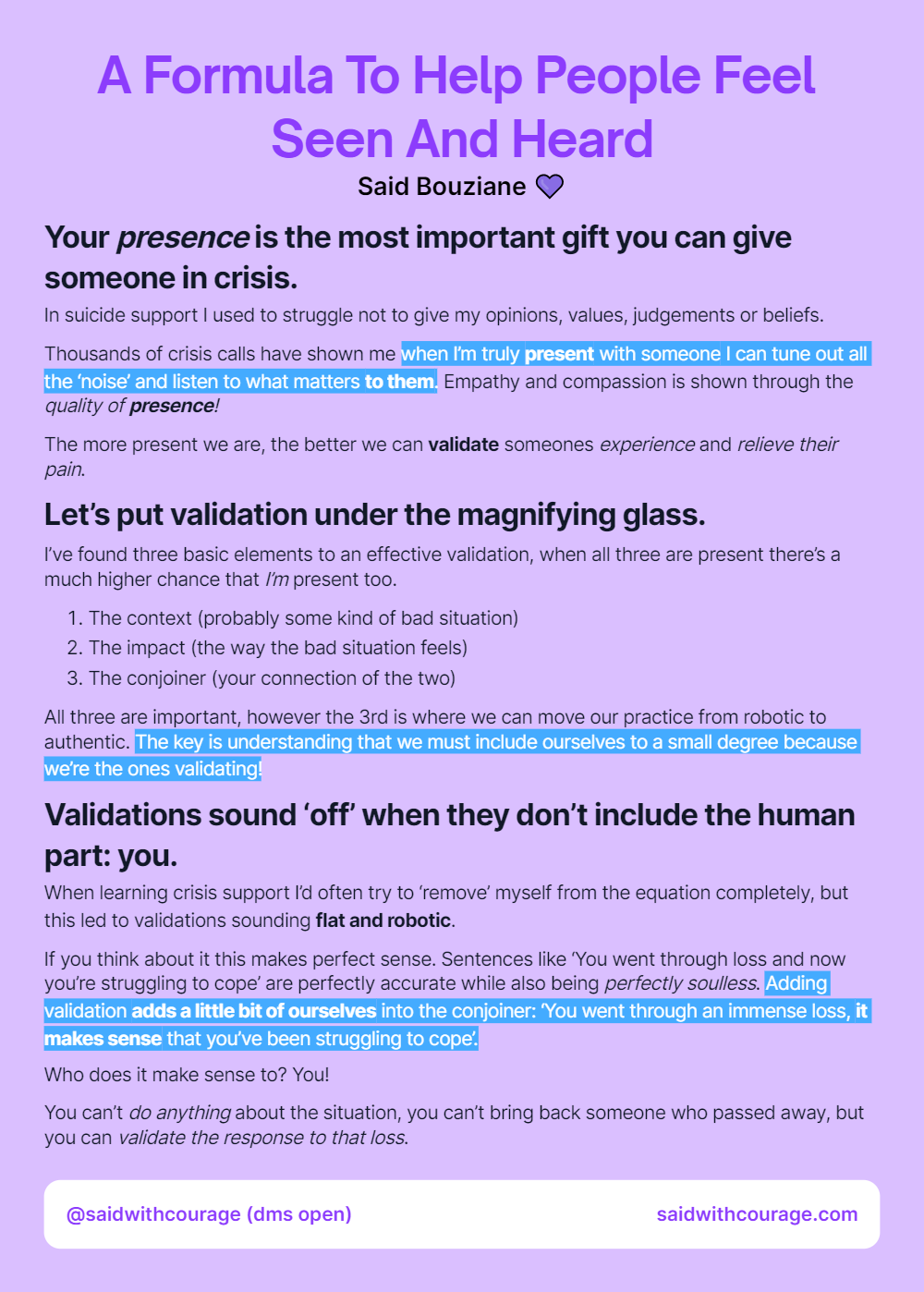Your presence is the most important gift you can give someone in crisis.
In suicide support I used to struggle not to give my opinions, values, judgements or beliefs.
Thousands of crisis calls have shown me when I’m truly present with someone I can tune out all the ‘noise’ and listen to what matters to them. Empathy and compassion is shown through the quality of presence!
The more present we are, the better we can validate someone’s experience and relieve their pain.
Let’s put validation under the magnifying glass.
I’ve found three basic elements to an effective validation, when all three are present there’s a much higher chance that I’m present too.
- The context (probably some kind of bad situation)
- The impact (the way the bad situation feels)
- The conjoiner (your connection of the two)
All three are important, however the 3rd is where we can move our practice from robotic to authentic. The key is understanding that we must include ourselves to a small degree because we’re the ones validating!
Validations sound ‘off’ when they don’t include the human part: you.
When learning crisis support I’d often try to ‘remove’ myself from the equation completely, but this led to validations sounding flat and robotic.
If you think about it this makes perfect sense. Sentences like ‘You went through loss and now you’re struggling to cope’ are perfectly accurate while also being perfectly soulless. Adding validation adds a little bit of ourselves into the conjoiner: ‘You went through an immense loss, it makes sense that you’ve been struggling to cope’.
Who does it make sense to? You!
You can’t do anything about the situation, you can’t bring back someone who passed away, but you can validate the response to that loss.

